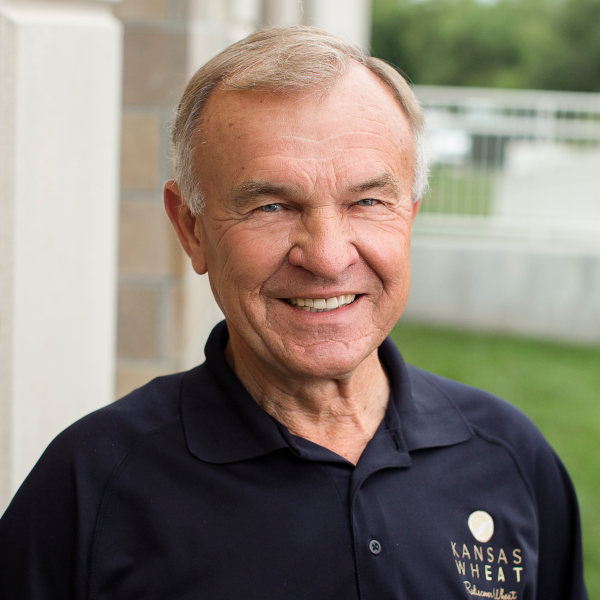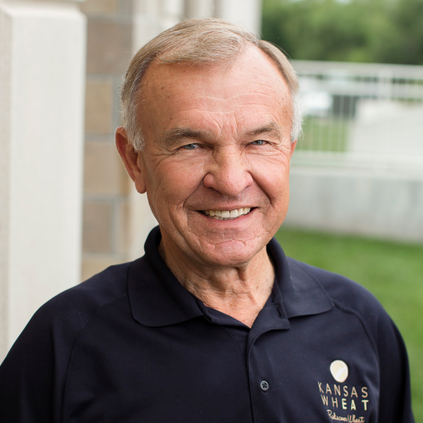A few months ago I wrote an article pointing out the fact that Hard Red Winter wheat production in the United States is at a crossroads. I meant that planted acres in the U.S. are down, primarily because of economics. It simply doesn’t make sense for a farmer to grow wheat if there is no profit in growing it, especially if there are other crops that can take wheat’s place in a farmer’s crop rotation. According to the National Agricultural Statistics Service, Kansas had seven million planted acres of wheat this year, perhaps the lowest number of planted acres in the last one hundred years. True, there will always be some wheat in Kansas. However, in the future, Kansas may have to give up the title of being known as “The Wheat State.”
The question now is, “If we are currently at a crossroads, which way do we go?”
Only you, as individual farmers, can answer that as it pertains to your farm, but as wheat farmers, we need to address the question as a group.
We, as Kansas wheat farmers, are more fortunate than we know. Kansas farmers have opportunities staring us right in the face that farmers in other states can only dream about. The opportunities are afforded to you as Kansas wheat growers through something you already own. It is something you have built and paid for. The potential for success is available to you; the outcome is up to you. Your Kansas Wheat Innovation Center in Manhattan, Kan., is there to help facilitate the process to improve wheat yield, along with wheat quality.
If you have not been to your Innovation Center, you need to go there. You need to go there to see what you have done, to see what research you are currently funding through your check-off and royalty payments and to evaluate the potential for the future. You will find the potential to make a profit is within reach. You will see that in the near future, wheat will once again compete economically with other crops.
Wheat has been at a disadvantage to other crops because certain countries will not accept genetically-modified (GM) wheat. We are very fortunate to be able to forge ahead through the use of the CRISPR/Cas9 process, gene markers and other scientific processes that are not classified as GM technology. The processes are just as fast and the results look very promising. As usual, the big hurdle is funding.
Each time a Kansas farmer decides to grow some crop other than wheat, the wheat check-off is gone, as well as the royalty on purchasing your Kansas varieties of wheat, therefore wheat research suffers. In Kansas only about 25 percent of our acres are planted in Certified Kansas State University varieties. That means that far too many farmers are choosing not to plant certified seed, and they are hurting the seed production engine that they actually own a big share in.
If farmers want to be able to have a choice of public or private varieties, they need to support basic wheat research. If individual farmers or groups of farmers see a need to invest in research projects that they deem important, that avenue is also available to them through the Kansas Wheat Commission Research Foundation. The Foundation is a 501(c)(3) and is also owned by the wheat growers of Kansas. Funds paid to the Foundation are aimed specifically at wheat research.
Most farmers in Kansas wish to grow wheat. In many cases we actually need it in our rotations. We all know that the best way to get something done is to do it ourselves, so wheat farmers need to do continue our investments in wheat research. We have already built the infrastructure. We simply need to get more involved, plant certified seed every year and stop saving seed. All of these steps together would greatly enhance farmer-owned research and help keep wheat as a profitable crop.
Ron Suppes is a Kansas wheat farmer. He has been a Kansas Wheat Commissioner since 2003. Contact him at suppes@wbsnet.org.




